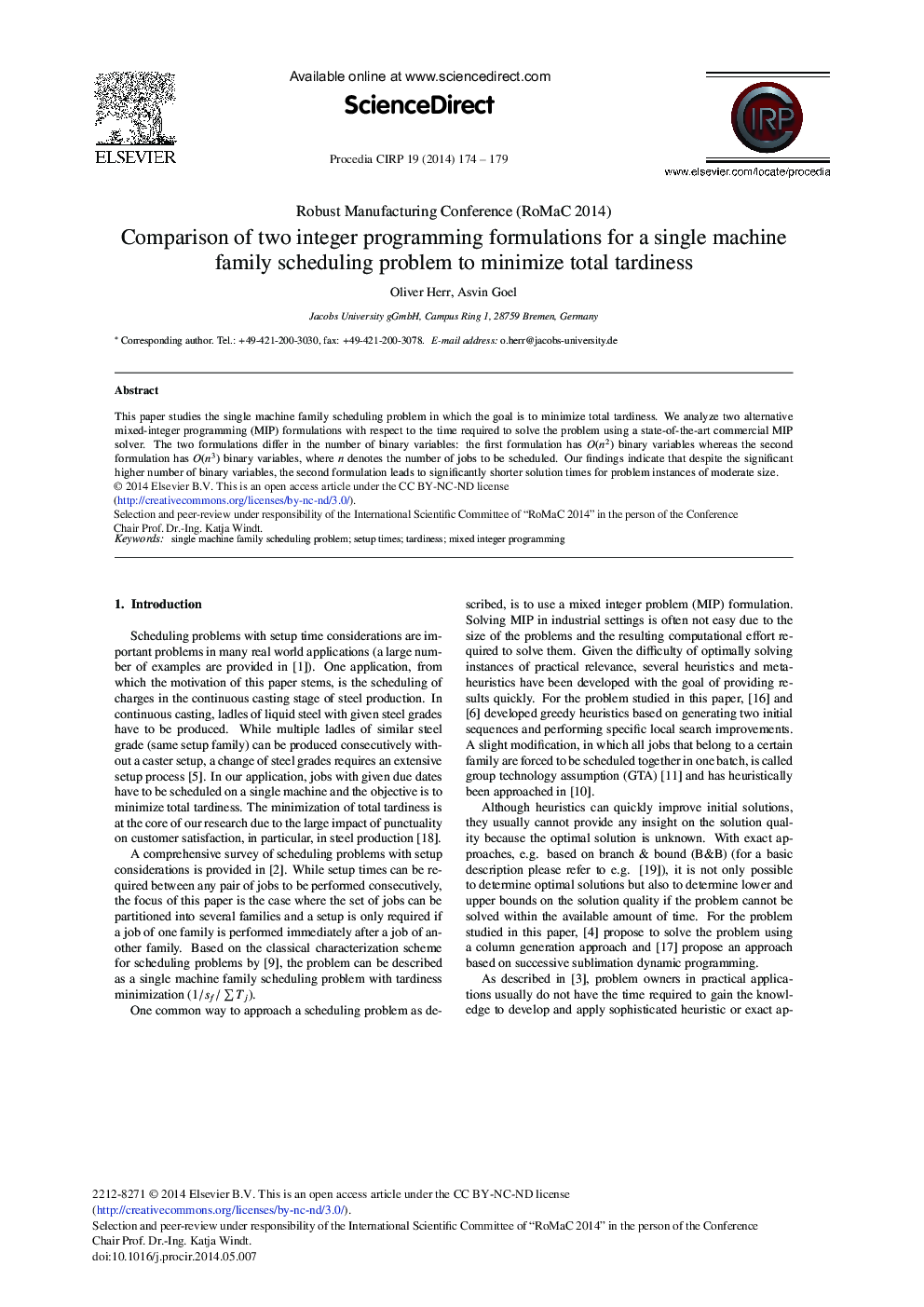| Article ID | Journal | Published Year | Pages | File Type |
|---|---|---|---|---|
| 1700332 | Procedia CIRP | 2014 | 6 Pages |
Abstract
This paper studies the single machine family scheduling problem in which the goal is to minimize total tardiness. We analyze two alternative mixed-integer programming (MIP) formulations with respect to the time required to solve the problem using a state-of-the-art commercial MIP solver. The two formulations differ in the number of binary variables: the first formulation has O(n2) binary variables whereas the second formulation has O(n3) binary variables, where n denotes the number of jobs to be scheduled. Our findings indicate that despite the significant higher number of binary variables, the second formulation leads to significantly shorter solution times for problem instances of moderate size.
Related Topics
Physical Sciences and Engineering
Engineering
Industrial and Manufacturing Engineering
